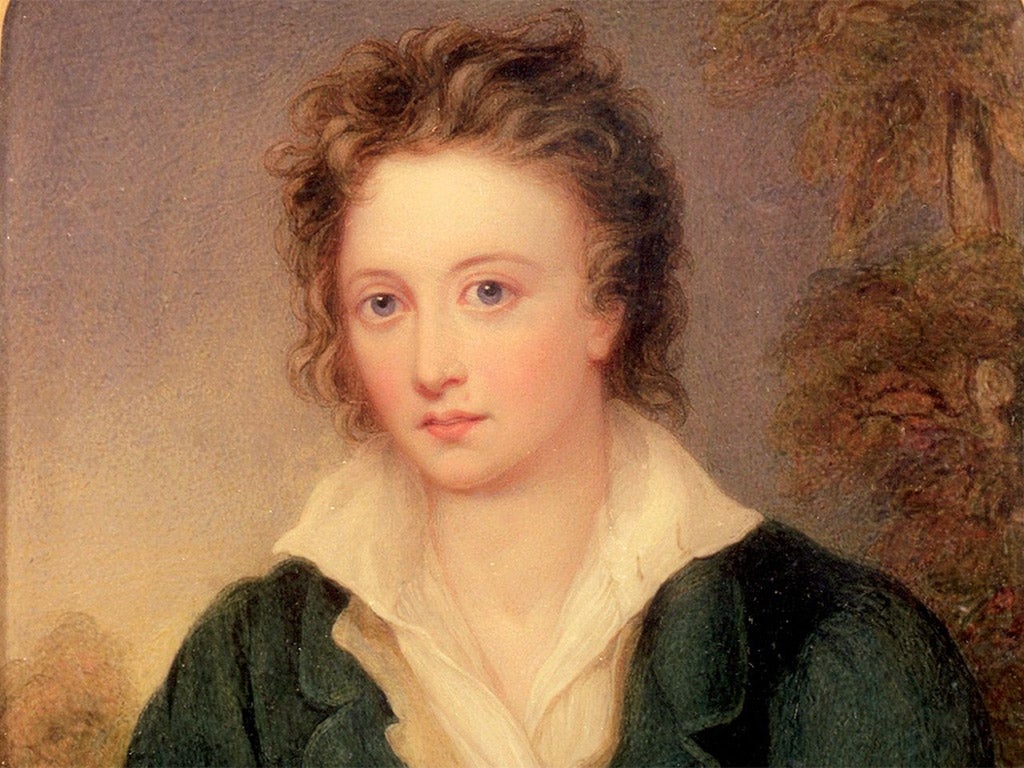Percy Bysshe Shelley lost poem to go public at University of Oxford
All copies of the pamphlet, which was first published in 1811, were believed lost to fire

Your support helps us to tell the story
From reproductive rights to climate change to Big Tech, The Independent is on the ground when the story is developing. Whether it's investigating the financials of Elon Musk's pro-Trump PAC or producing our latest documentary, 'The A Word', which shines a light on the American women fighting for reproductive rights, we know how important it is to parse out the facts from the messaging.
At such a critical moment in US history, we need reporters on the ground. Your donation allows us to keep sending journalists to speak to both sides of the story.
The Independent is trusted by Americans across the entire political spectrum. And unlike many other quality news outlets, we choose not to lock Americans out of our reporting and analysis with paywalls. We believe quality journalism should be available to everyone, paid for by those who can afford it.
Your support makes all the difference.A lost anti-war poem by Percy Bysshe Shelley, which experts say will “rewrite” the romantic poet’s biography, is to go on display for the first time in two centuries after it was acquired by the Bodleian Libraries.
The University of Oxford institution holds one of the most significant collections of Shelley’s works and manuscripts, and on 10 November announced it had bought the pamphlet Poetical Essay on the Existing State of Things.
All copies of the pamphlet, which was first published in 1811, were believed lost to fire until 2006, when one was rediscovered. Until now, the London book dealer that owned the work kept it under lock and key, leaving scholars guessing its contents.
Bodley’s Librarian Richard Ovenden, who holds the senior executive position at the Bodleian Libraries, believes the pamphlet – in which Shelley responds to Britain’s involvement in the Napoleonic war and criticises the imprisonment of an Irish journalist – will provide a new take on the poet’s early life.
“This will completely change the biography of Shelley,” Mr Ovenden said. “It has been known he wrote it from the 19th century but no one has seen a copy of it. There was much speculation over what it would be like. It is the young radical poet sallying forth potentially risking imprisonment.”
The 20-page pamphlet contains a 172-line political poem accompanied by a preface and notes from the author. It deals with issues including the abuse of the press, dysfunctional political institutions and the global impact of war.

The poem begins: “Destruction marks thee! o’er the blood-stain’d heath/ Is faintly borne the stifled wail of death;/ Millions to fight compell’d, to fight or die/ In mangled heaps on War’s red altar lie.”
Mr Ovenden said: “This is the first expression of the assured poet. He has published things before, but they are juvenilia. This is much more assured and artistic. It’s really quite polished.” It is the 12 millionth printed book in the Bodleian’s collection.
He announced the addition to the collection in an event at the Bodleian’s Weston Library last night. Dame Vanessa Redgrave reading the preface and Oxford students read the poem. It has also been made available online. The price of the work was not disclosed, but the librarian said it was bought with the support of a wealthy benefactor.
Michael Rossington, professor of romantic literature at the University of Newcastle, said it was a “tremendously exciting moment” as the poem “hasn’t been read by any Shelley biographers or scholars since it was composed, and people are intrigued to find out exactly what it’s about.”
Shelley wrote Poetical Essay during his first year at Oxford in 1810 and it was printed the following year under the alias of “a gentleman of the University of Oxford”. The same year, he was thrown out of the university after refusing to deny he had written a pamphlet called The Necessity of Atheism.
Poetical Essay shows the poet engaging with political and social issues including support for Irish journalist Peter Finnerty, who was imprisoned and accused of libel after criticising British military operations.
“The poem is very interesting because it marks a new stage in Shelley’s development as a poet, revealing his early interest in the big issues of his day and his belief that poetry can be used to alter public opinion and effect change,” Professor Rossington added.
Other lost works by Shelley include the early novel Hubert Cauvin about the French Revolution and translations from Spinoza and the Fido dialogue from Plato.
Join our commenting forum
Join thought-provoking conversations, follow other Independent readers and see their replies
Comments